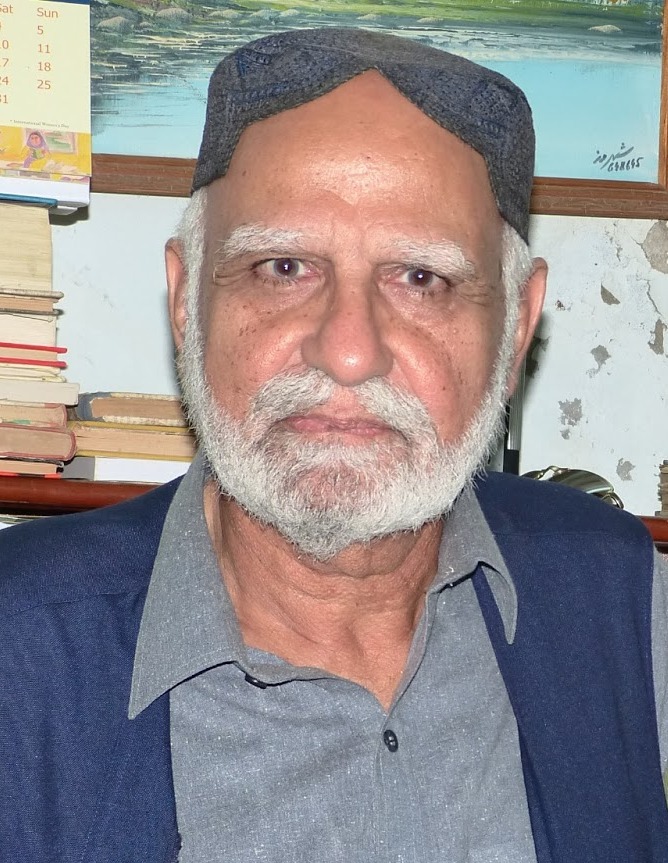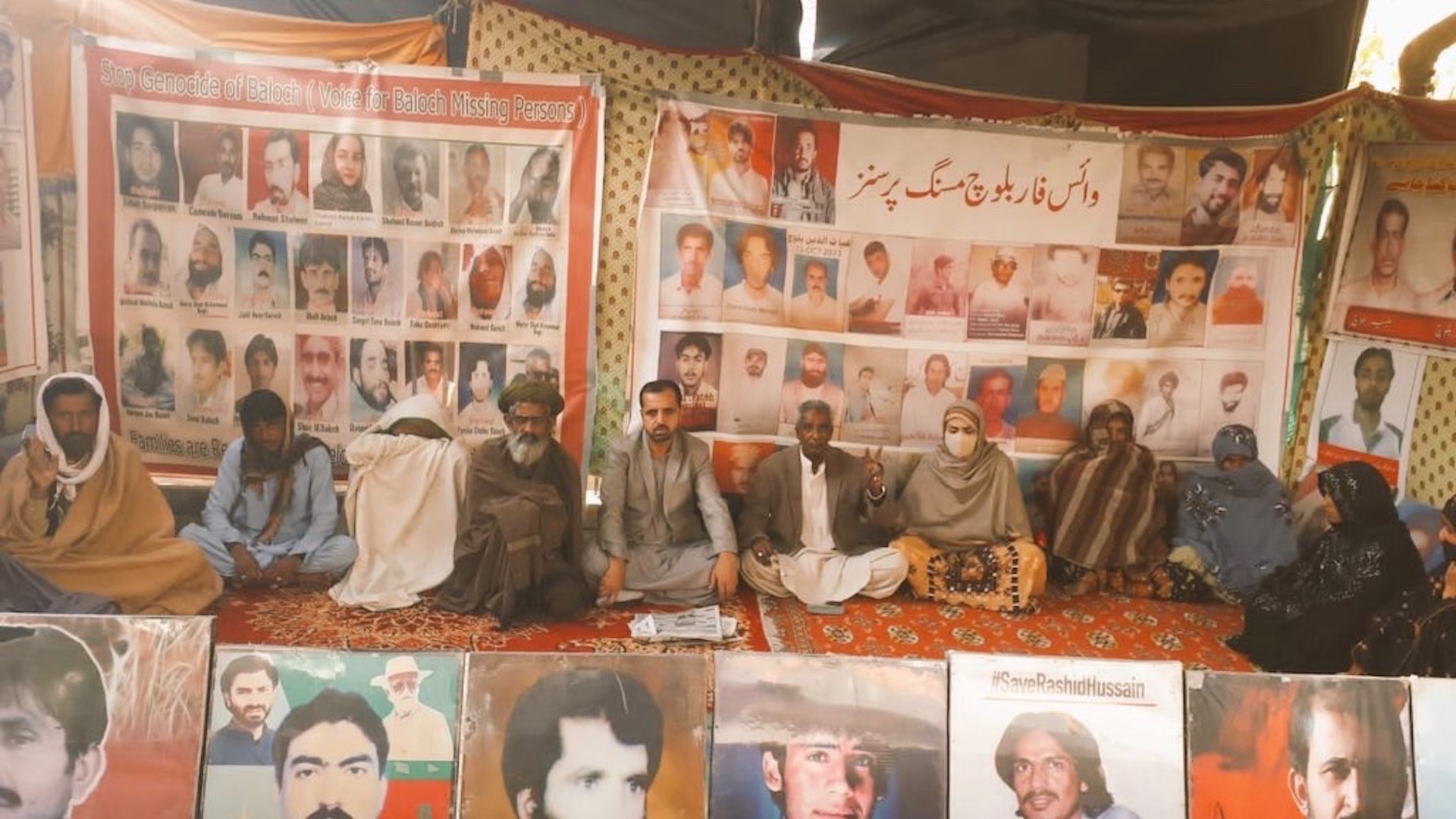The world knows Balochistan as the 44 per cent land mass of Pakistan, but most do not know that becoming part of Pakistan was not its own choice. It wanted coexistence, but was forced to merge with Pakistan. Moreover, it isn’t ‘terra nullius’ (nobody’s land), but is seen as such. There are people in Balochistan too; people whose lives have been destroyed by injustices that they have been subjected to since the forced merger on March 27th 1948.
Muhammad Ali Jinnah’s use of force to make Khan accede forever forfeited civilians’ say in Balochistan’s matters and gave unchallenged dominance to the military. This injustice also resulted in the Baloch people’s eternal mistrust in Pakistan; prompting resistance which to date has not only continued but intensified in proportion to atrocities and injustices against the Baloch people.
FORCED UNIFORMITY
Oblivious to the different social ethea they were confronted with within physical boundaries of what became Pakistan, the extremely insecure Pakistani elite and establishment decided to impose uniformity in the name of religion and enforce conformity by force. For them, the universe itself was created on 14th August and histories of the nations that existed for eons before did not matter. Bengalis suffered immeasurably but luckily broke free in 1971 while in Balochistan the cost of this unnecessary tragedy in human, social and economic terms has been catastrophic and continues to rise.
The policy of repression in Balochistan has always been indiscriminate, but now it is the students who bear the brunt. Hafeez, Faheem, Sagheer Baloch among many others were abducted in broad daylight. Many have been tortured during illegal incarceration.
Disappearances have been rife in Balochistan since long with a few lucky ones returning alive, but their mental and physical health is shattered for good. Sadly, neither high courts nor the so-called nationalist politicians of Balochistan dare to challenge this culture of impunity surrounding enforced disappearances.
The policy of repression in Balochistan has always been indiscriminate, but now it is the students who bear the brunt.
A reign of terror prevailed in Balochistan during 2008-2013 when the Pakistan Peoples’ Party (PPP) ruled at the centre and in Balochistan. Death squads operated with impunity and thousands of Baloch activists became victims of the ‘abduct, kill and dump’ policy. Many dumped bodies had ‘Pakistan Zindabad’ carved out on them. Professor Saba Dashtyari was killed on June 1st 2011 by assassins. The Tutak mass-grave was discovered in January 2014. The list is too long, and the situation hasn’t improved since then.
When Sangat Sana Baloch was found dead on 13th February 2012, there were 28 bullet wounds on his body. Jalil Reki, son of Mama Qadeer, the Vice Chairman of Voice of Baloch Missing Persons (VBMP), had received three bullets in his heart. Hearts they couldn’t subdue were vengefully shot multiple times.
Víctor Jara, the leftist Chilean poet-singer, was arrested when Pinochet overthrew Allende in 1973. His hands were crushed and was tauntingly asked to play the guitar. He definitely sang Venceremos (“We will prevail”). Beaten brutally again, he was then machine gunned and dumped in Santiago’ outskirts. His body had 44 bullet wounds. What songs Sangat Sana and Jalil Reki sang we may never know, but they with their unconquerable souls died defiantly unbowed to the very end, as did all those who never returned.
FAKE ‘ENCOUNTERS’
A new brutal method has been adopted wherein every time there is an attack by the Sarmachars anywhere, the so-called Counter Terrorism Department (CTD), in retaliation, kills abducted Baloch activists, declaring their murders to be ‘encounters’ –- the same way the Iranian state hanged prisoners in custody after 1988 Mujahideen-e-Khalq attacks. These brutal acts happen in public glare and at this injustice too, the courts and politicians remain silent spectators. What goes on in Marri, Bugti areas and Awaran away from the public eye is difficult to imagine.
Dissidents who go abroad for relative safety can now be targeted even in exile, as cases of Karima Baloch and Sajid Hussain amply prove.
Peaceful protests by the relatives of the victims of enforced disappearances and extrajudicial killings are either completely ignored or given a lukewarm response. In 2013-14, Baloch human rights defender Mama Qadeer marched from Quetta to Karachi and then on to Islamabad in 106 days, but only garnered harassment and threats for himself and those who accommodated and assisted him. Mama Qadeer’s protest outside press clubs since July 28th 2009, is now nearly 5000 days old, but remains unheeded.
In December 2021, relatives of Baloch missing persons held a protest camp out in the open in freezing cold at Islamabad’s D-Chowk for 10 days. A federal minister visited them, but could only offer halfhearted assurances. The then opposition which is now the ruling coalition showed sympathy, but they have also ignored the plight of the affectees after coming into power.
In mid-2022, the relatives of Baloch missing persons and victims of extrajudicial killings held a similar protest in Quetta that continued for nearly two months. It was after two months that a couple of ministers came to visit the protestors, again with false assurances, and the issues remained unresolved.
The Commission on Enforced Disappearance is toothless. After a missing person is released, the commission does not even bother to find out why they were abducted in the first place and who the abductors were. These commissions are simply a placebo treatment for a fatal disease.
Disenfranchisement and disempowerment of the Baloch go side by side. Politicians who are obedient to the military establishment are chosen to rule Balochistan. On their watch, gross human rights abuses and exploitation and loot of Baloch resources are carried out. Saindak copper and gold mines productive life is nearly over, and only China has benefited, because Balochistan’s share was just 2%. Balochistan and Chagai’s people didn’t benefit and now they are forced to cope with the environmentally hazardous cyanide laden sludge mountains, which contaminate air as well as ground water.
The contract for Reko Diq, which is much richer than Saindak, has been given to notoriously predatory Barrick Gold Corporation whose record of involvement in pollution and human rights abuses is disgraceful. The organisation was recently under fire from the UN over toxic spills from Veladero mine in Argentina and faces a lawsuit from Ontario, Canada, for alleged killings and abuses at Tanzania North Mara mine. Such a notorious company’s involvement means more suffering for people of Balochistan, but bounties for corporations, politicians and bureaucrats.
The repression, oppression and exploitation in Balochistan is multi-faceted and multi-layered. Conflicts occur and need resolution, but the Pakistan establishment considers conflict necessary in Balochistan for it believes that it will be able to impose its will on the people through force. Use of force by the state has continued for the last 75 years, but so has resistance against this injustice.
The Pakistan establishment has bombed, killed, disappeared, maimed, imprisoned and sanctioned Baloch people in a bid to break their spirit, but these attempts have always failed. And If 75 years of repression hasn’t deterred people from fighting for their rights, the struggle shall continue until the victims are served justice.
The views expressed here are the writer’s own and do not necessarily reflect Dissent Today’s editorial policy.

The writer has been associated with the Baloch movement since 1971. He tweets @mmatalpur and can be reached at mmatalpur@gmail.com.


Stay strong. Don’t give up!